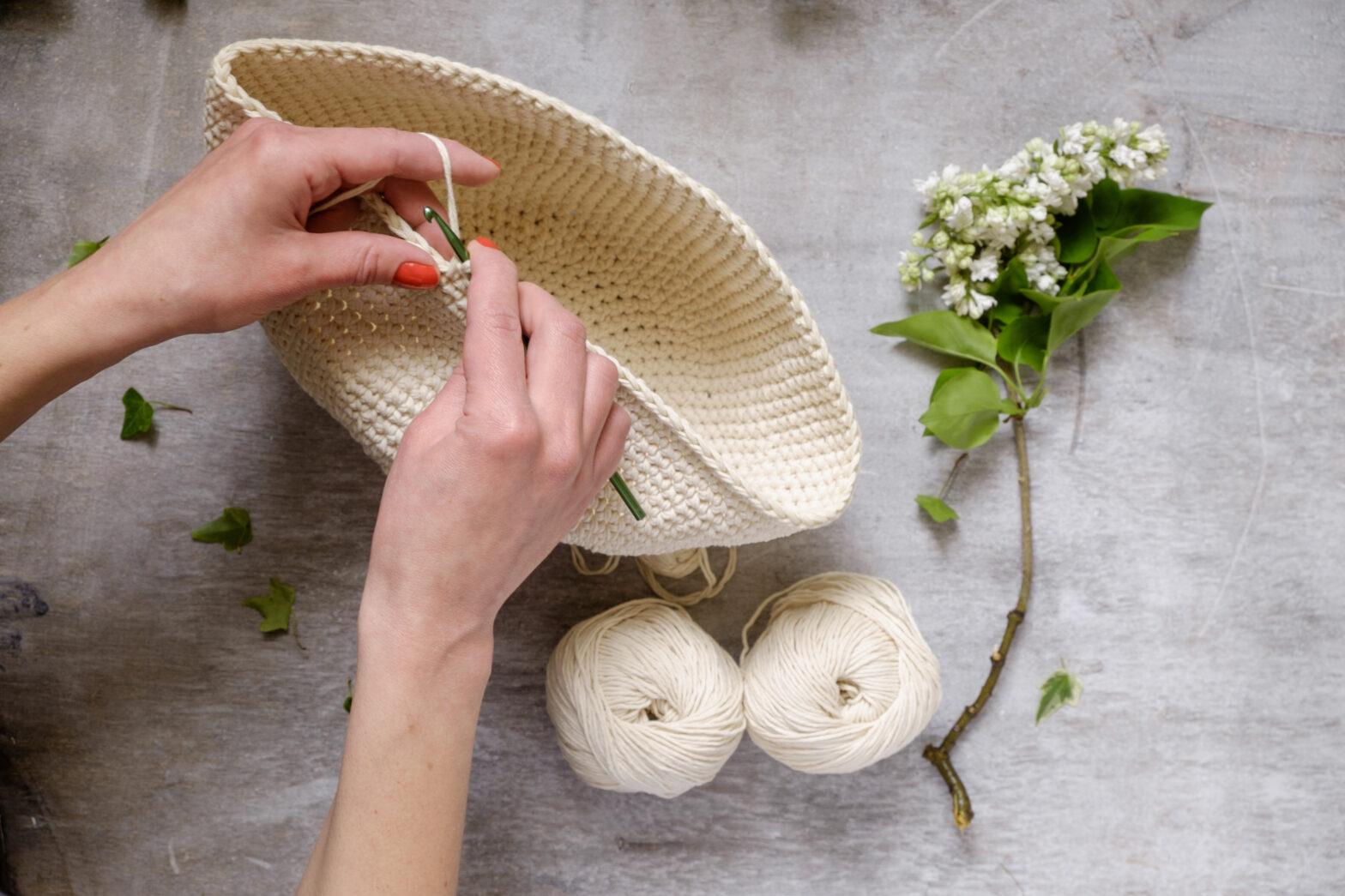As the clock struck midnight and we merrily sang ‘Auld Lang Syne’ to celebrate the start of 2017, we also began to look ahead and make resolutions to ensure that the upcoming year is even better than the one just gone.
Some of us will plan to get fit and lose weight by joining a gym and eating healthily. Others may decide they are going to kick the habit and quit smoking, while many will resolve to finally leave their boring-but-stressful 9 to 5 and instead do a fulfilling job that makes them happy.
If you have been saying for months that you are fed up with your role and don’t feel like your career is going anywhere then perhaps now is the perfect time to resolve to find a new one. And, if you want to guarantee it will make you happy, why not turn your hobby – the thing you love the most – into a job that you do all day, every day.
It is easier than ever before to turn your hobby into a business. But, did you know that, less than three weeks into the New Year, on January 17th, many of us ditch our New Year’s resolutions and write them off as having been failed? To avoid that, here are a few people who have done it themselves and show that turning your hobby into your career really is possible…
You can craft your way to success
In 2010, after working as a legal secretary in London for many years, Lesa Simons moved to the Isle of Wight with her husband and two young children.
One day, while scrolling through the internet, she saw an image of a button bouquet. ‘I was never into crafts,’ she explains. ‘But, after seeing it, I knew I had to try it out.’
After purchasing some buttons and watching tutorials, she was ready to give it a go: ‘It was trial and error as tutorials gave the basics but it really was time and practice that got me going.
‘I listed one online. It sold! I was over the moon. I made another, it sold and it went from there. I was selling more and people were loving them and I felt it was time to take it seriously and do something I love, and if I could make it into a business, then brilliant!’
That image that sparked her interest online turned into a hobby which eventually became a business named I Heart Buttons. ‘I started to get bespoke orders which provided the next challenge of making sure I could work to the bride’s request. After I had sold a few, and when I started to get requests to make more, I decided I had to take it on as a business and a brand.’
The wedding bouquets and buttonholes Lesa creates, using buttons alongside other decorative items, give brides something a little different for the big day that will last a lot longer than a bunch of flowers.
Is it just a fad?
Lesa did, however, have some concerns. She says, ‘Would people still want them? Was it a fad that would fade away? Was there enough people out there who wanted one to make it into a career…? Was I good enough? Could I be a business person?’
In the five years since she started she has made 350 music-themed buttonholes for the stars of the MOBO Awards, created the bouquets and buttonholes for the wedding of Liam Payne’s sister, won awards and been featured in the likes of Brides Magazine. In that time, she has gone from working in the kitchen to having a dedicated studio.
To those considering following in her footsteps, Lesa says social media is crucial. She explains, ‘Without it, I very much doubt my business would be where it is now.’
She also stresses the importance of being ready for the challenge, adding: ‘Be prepared for a lot of hard work… it is time consuming…there are lots of ups and downs and it can be stressful at times but the hard work will pay off.’
Craft hobby businesses still on the rise
Joanne Dewberry, who wrote a book about turning your craft hobby into a small business, thinks such businesses are still on the rise because of the number of avenues through which products can be sold. Sites such as Freeads, for example, provide you with a platform to list your product for free. This means you have fewer overheads and can even do it on the side of your full-time job at first, allowing you to eventually leave the stability of that if and when you are 100 per cent ready to do so.
Joanne, who started out herself by writing a small business blog, also made a lot of products and found she was continually being asked questions regarding craft based businesses. ‘I took some time off to have my daughter,’ she explains, ‘but didn’t want my blog to slide so scheduled in craft-based business posts. These were so popular that I literally cut and pasted the content into a book submission and well the rest is history. Crafting a Successful Small Business was published in 2012.’
She says that hobby to business start-ups can be quite low risk because you will already have most of the equipment and you can use free social media to build up a following and develop sales.
To anyone thinking of setting up a crafting business, Joanne urges: ‘Just do it. What do you have to lose? If you can’t make a go of it at least you are well stocked for Christmas and birthday presents.’
However, she also points out that research is vital and that you have to do all you can to make sure your product stands out from the already-large crowd.
It is time to run your own business
About 37 per cent of UK entrepreneurs have turned their hobbies and passions into successful enterprises and Luke Hughes, owner of Origym, most definitely fits into that percentage.
‘I loved going to the gym and weight training was a real passion of mine,’ Luke explains. ‘I loved helping my friends, who were perhaps a little less knowledgeable, by writing detailed nutrition plans based on their fitness goals and bespoke training plans to give them a routine that they could adhere to.’
He adds, ‘I did this for several years as I found it extremely rewarding and it created value to a hobby that I really enjoyed talking about. It also broke me out of the mundane of my day-to-day sales role that I was performing at the time.’
Luke had worked for an energy supply company and did not enjoy his role. He explains, ‘I just had no interest in energy and tariffs, it was not what I wanted to do with my life. Now, I genuinely can’t wait to go to work everyday.’
But it wasn’t until a friend suggested he become a personal trainer and put his skills and love for fitness to good use that he considered it. ‘I don’t know why I did not do it sooner,’ he says. Following a personal trainer course and vocational training he got the job he wanted, but he explains, ‘I thought why not run my own training provider business and start my own gym.’ And he did: Origym is an education company for the fitness sector aimed at those looking to become a personal trainer, fitness instructor or class trainer. In addition, he also has training gyms across the UK, where students are placed following completion of the course.
Obviously, he had some concerns at the start. Luke said, ‘I was mainly worried that the money and time that I had invested would go to waste. The scary part would be that I might have to go back to that sales job; a job that I found depressing and underwhelming.’
But, four years later, his business has gone from strength to strength. ‘I now have multiple gyms UK wide and a training provider that last year graduated over 1200 students into the fitness sector.’
He says, ‘Source a business that does what you want to be doing, examine and research exactly what you need to get there and most importantly take action…only you can make that change!’
Picture your hobby becoming your career
Photographing newborns sounds like a dreamy career, doesn’t it? But, it takes some skill to capture the perfect photo between the tears and squirming – a skill that was once just a hobby for Karen Wiltshire and now pays her bills.
‘I remember asking my family for a DSLR for my 40th birthday,’ Karen recalls. ‘I had enjoyed photography as part of my course for many years at art school but never had the chance to pick up a camera again.’
Karen began by practicing on her two-year-old son and four-month-old daughter but was working at a magazine printers. However, in 2010 she began to see that the world of magazine production was changing rapidly. She was right. The next year, she explains, ‘I was made redundant after 23 years with the same firm – I had little choice but to make a go of my hobby.
‘I worried about all the things any normal person would worry about and had sleepless nights. But, at the end of the day I had no choice, redundancy after being in the same company for so long could have been terrifying but I saw it as a positive. I was given the chance to do what I loved.’
And in 2013, when Karen was named The Guild Photographers Photographer of the Year, she knew without a doubt she had done the right thing.
Karen also praises the role of social media in her success. ‘It gets a lot of bad press but without it I’d be sat in isolation with no network of like-minded people.’
She also advises finding a business mentor, adding, ‘I’m a creative person, the creative part is important but the business side of things will make or break you.’
Just because you are good at your hobby doesn’t mean you will be a natural at the business side of things – and that’s a side of things that Karen says is vital.
She says, ‘I learnt pretty quickly that taking pretty pictures didn’t actually pay the bills and I had to take that skill and use it in a business minded way, without doing that I would have failed.’
You know, passion really is the key to success and what could you be more passionate about than your hobby? So, if you aren’t already writing that resignation letter, perhaps now is the perfect time to begin because, you know what they say, new year, new you!





